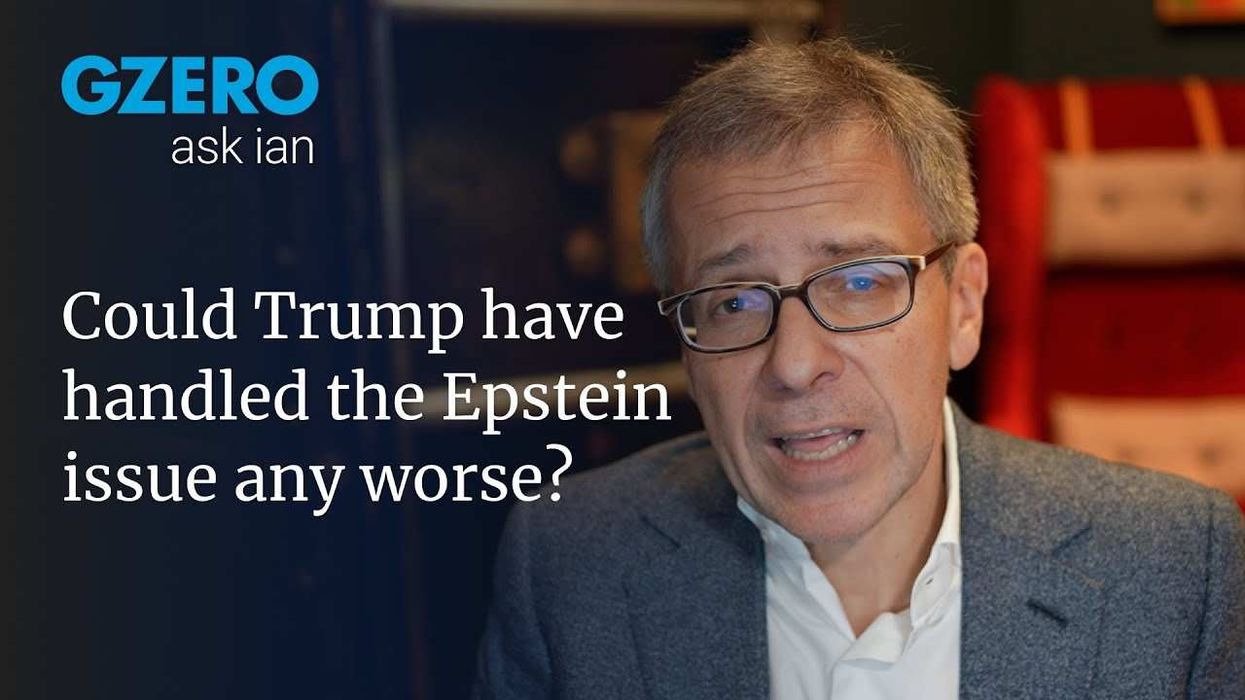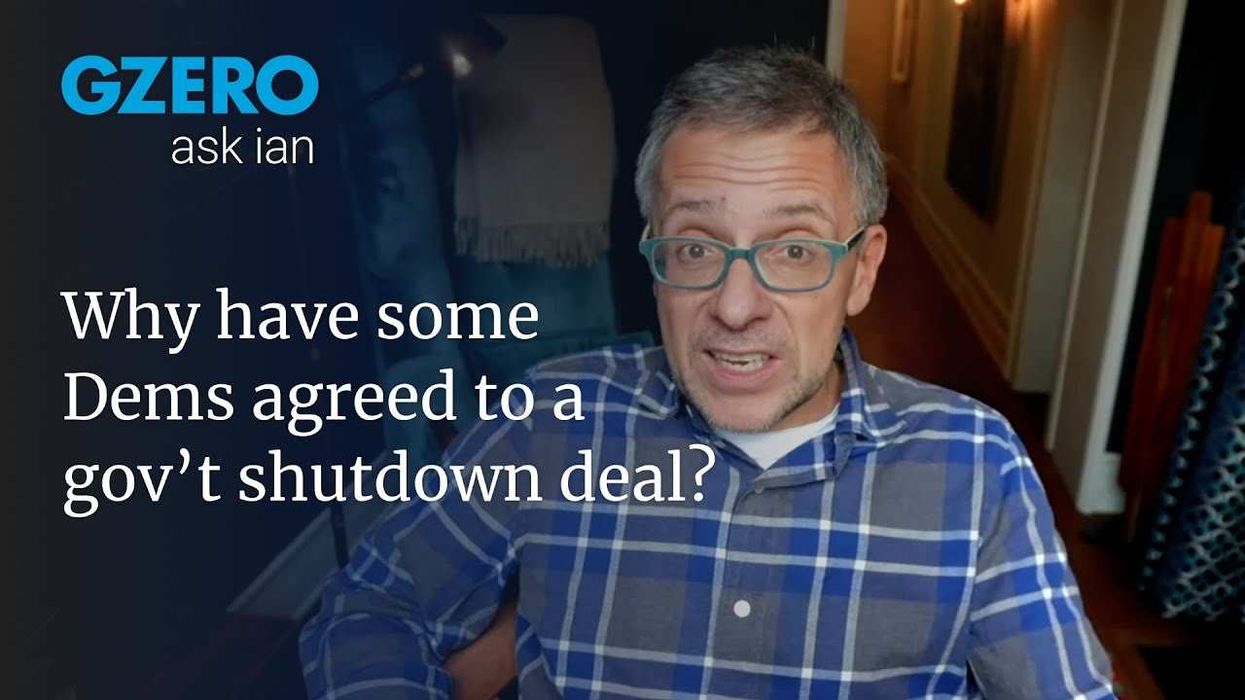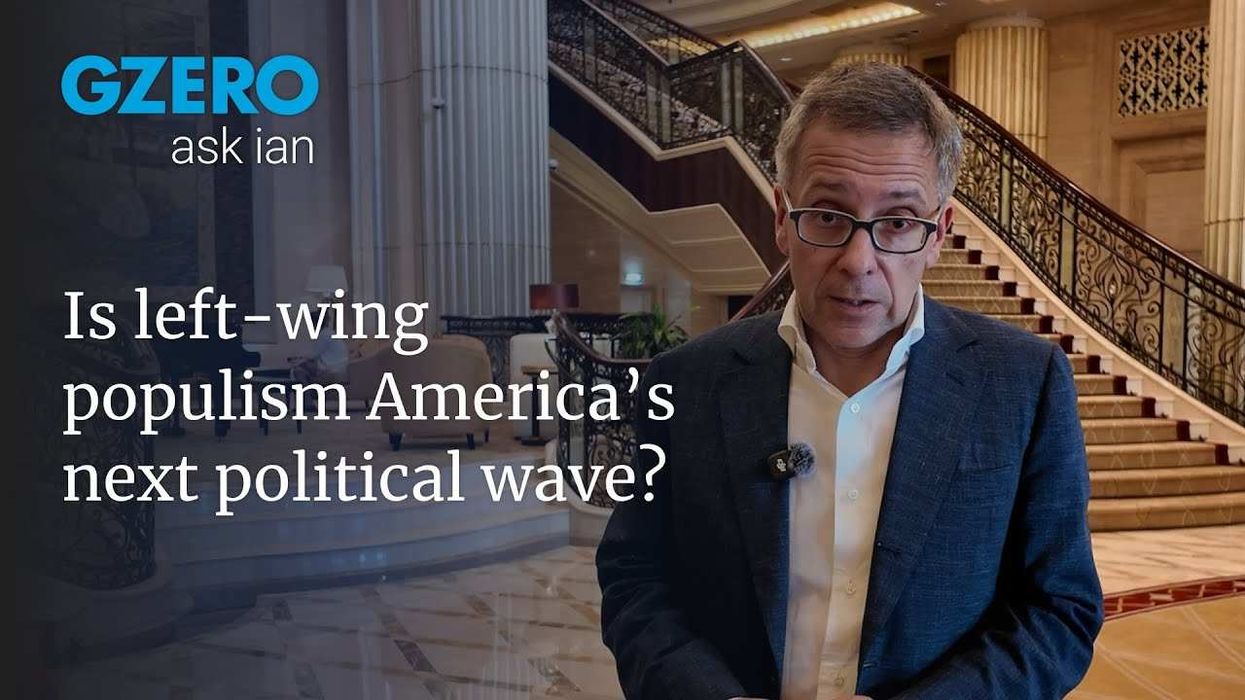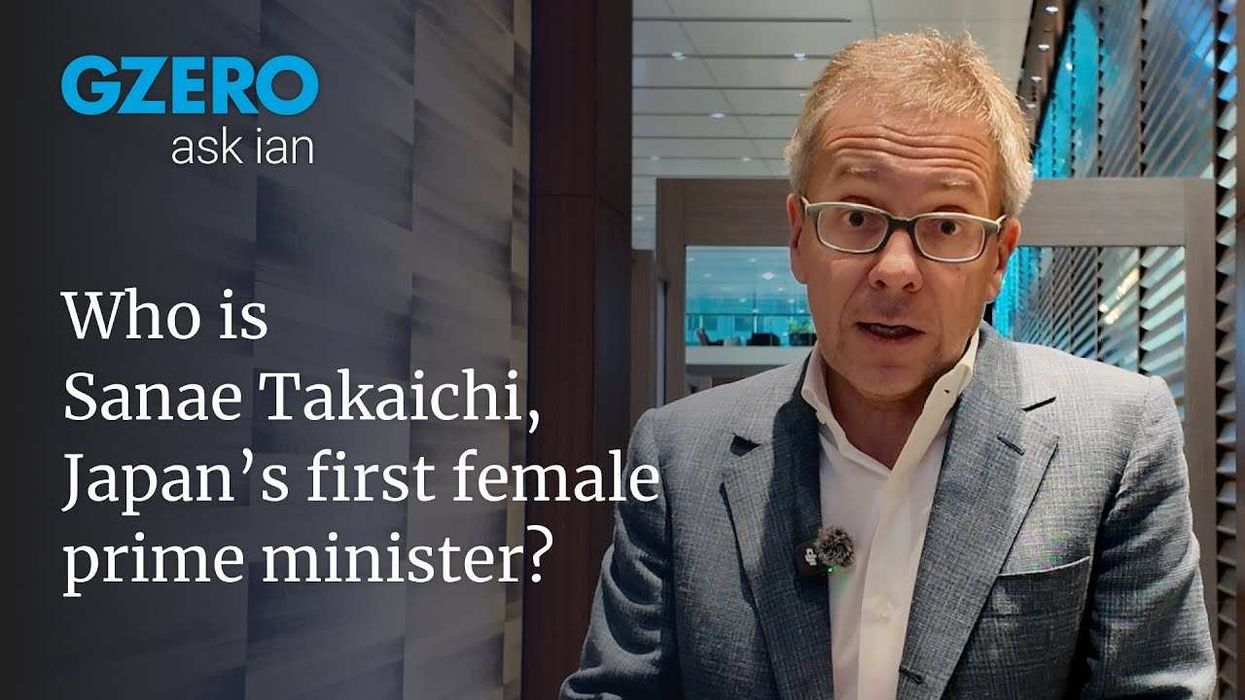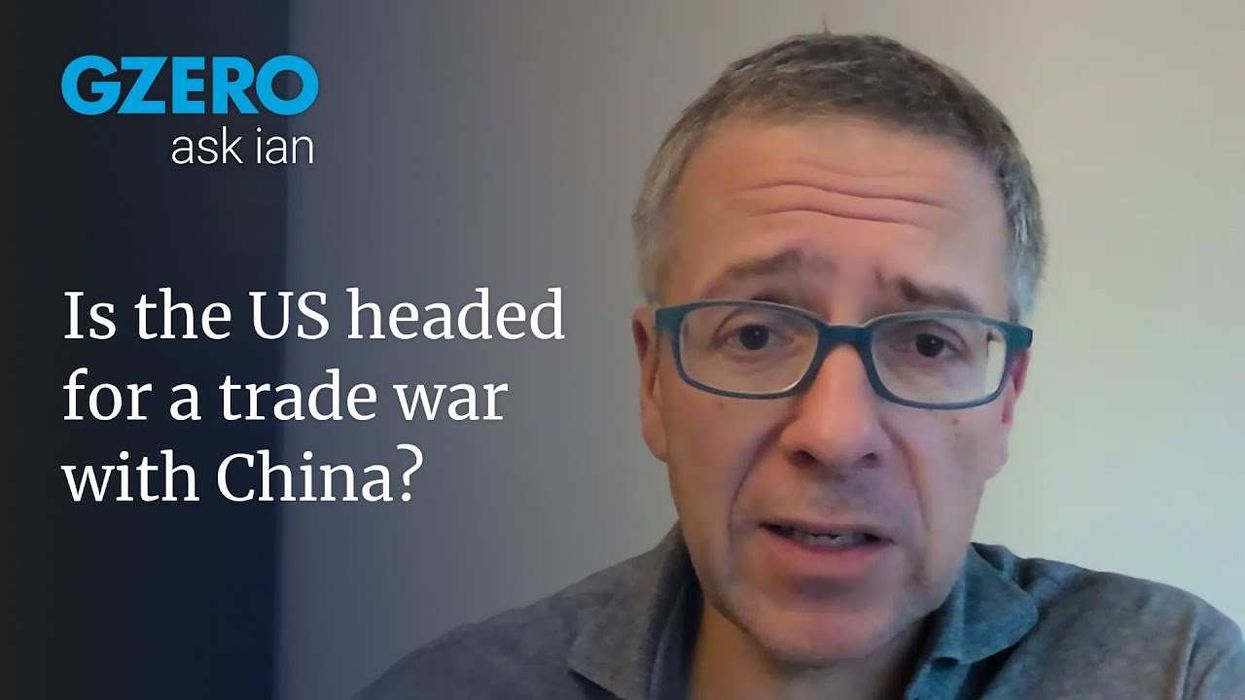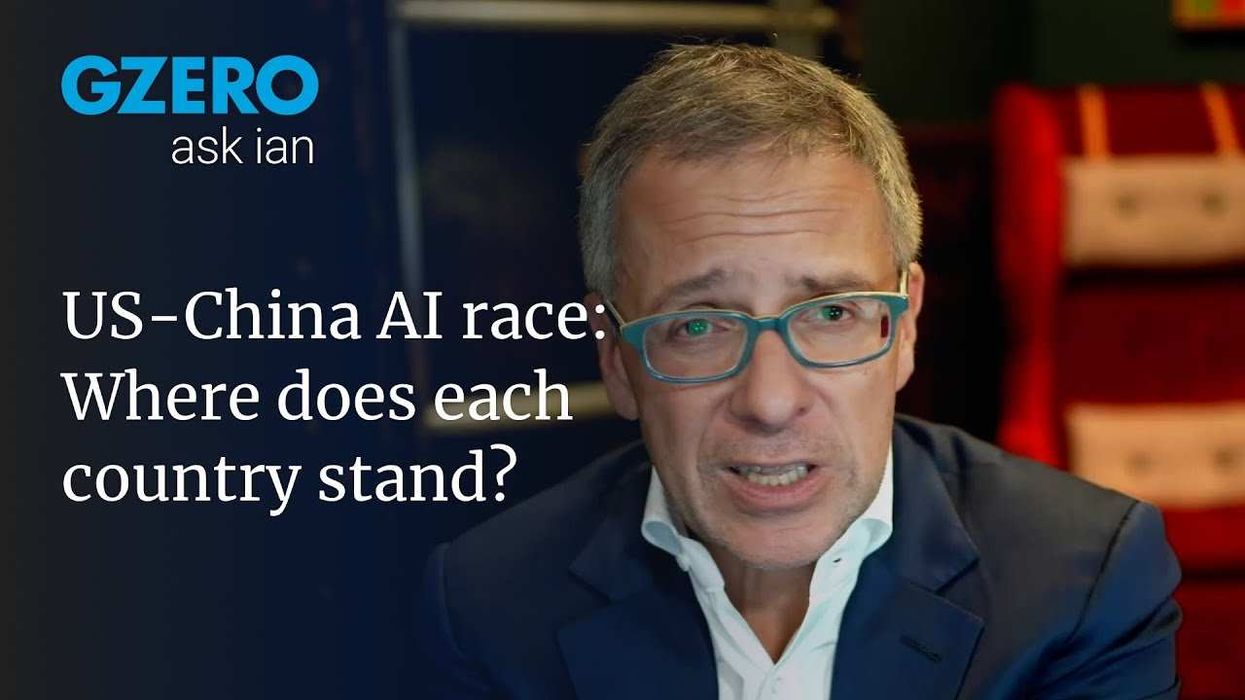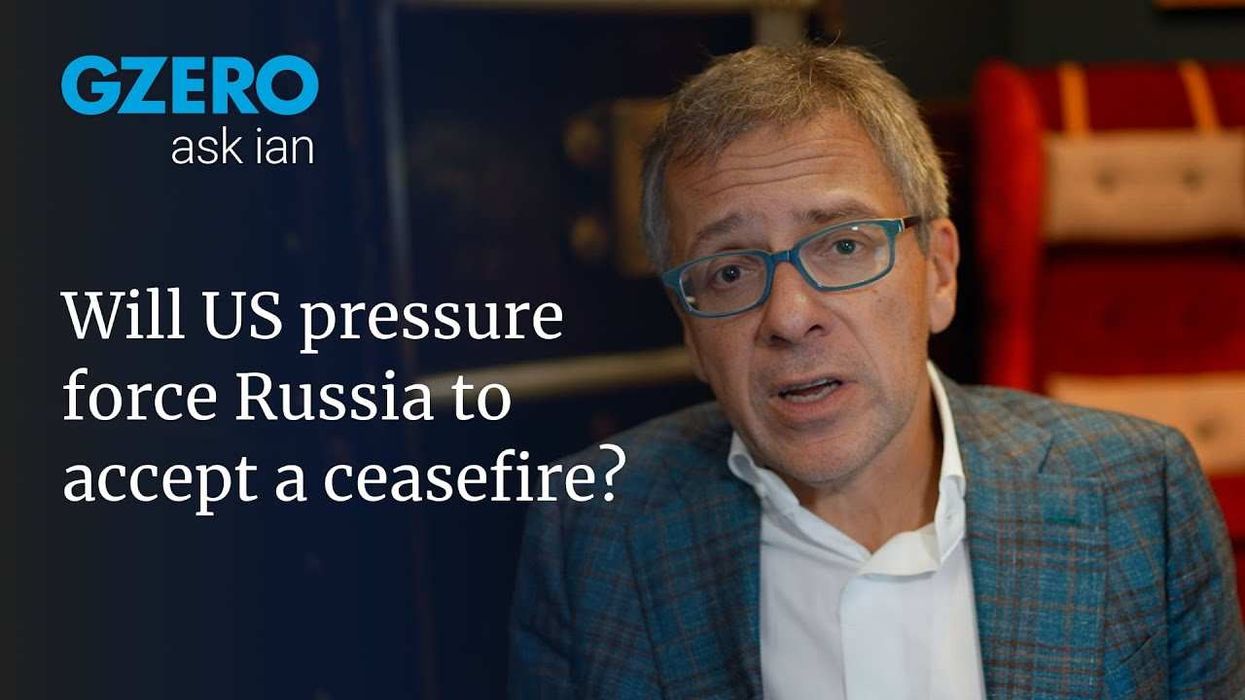Trending Now
We have updated our Privacy Policy and Terms of Use for Eurasia Group and its affiliates, including GZERO Media, to clarify the types of data we collect, how we collect it, how we use data and with whom we share data. By using our website you consent to our Terms and Conditions and Privacy Policy, including the transfer of your personal data to the United States from your country of residence, and our use of cookies described in our Cookie Policy.
ask ian
“When they’re running you out of town, get in front of the crowd and make it look like you’re leading the parade,” Ian says of Trump’s Sunday-night flip.
Now Republicans can safely vote to release what’s legally permissible, while Trump’s DOJ delays disclosures by launching new investigations into Democrats named in the files.
It caps a rough stretch for Trump: election losses in multiple states, slipping poll numbers, and public feuds with longtime allies. But when it comes to the Epstein documents themselves, Ian is clear: they will likely contain embarrassing details for Trump, but he does not expect they will show illegal involvement, or the Biden administration would have already acted.
He notes that a handful of Democrats joined Republicans to reopen the government, prompting “immediate criticism from every corner of the Democratic Party,” despite recent electoral momentum. As Ian puts it, Democrats “just lack coordination as a party,” even when they’re winning.
While the shutdown may be ending, Ian cautions that political vulnerability persists on both sides, especially as affordability becomes a key concern for voters.
A Democratic Socialist, Mamdani’s rise signals a generational and ideological shift in American politics. “Mamdani represents an urban, educated, professional base,” Ian explains.
But unlike right-wing populism rooted in nationalism and manufacturing, this new movement stems from economic insecurity driven by AI disruption, stagnant hiring, and generational inequality.
The result, Ian says, is a wave of progressive populism the Democratic establishment isn’t prepared for and one Donald Trump hopes to exploit. “President Trump wants Mamdani to win as a foil, as someone he intends to go to war against… Mamdani is more politically expedient and useful.”
A historic first in Japan: Sanae Takaichi has become the country’s first female prime minister.
Speaking from Tokyo, Ian Bremmer explains why her rise marks a turning point for Japan, and why her close alignment with Donald Trump could reshape global politics.
“President Trump is coming to Tokyo, and she is going to show Trump that she's a big fan and friend on the global stage.”
With Takaichi expected to deepen ties with Trump on security, fiscal policy, and culture, Ian calls her victory both symbolically powerful and geopolitically significant.
US–China relations are once again on edge. After Washington expanded export controls on Chinese tech firms, Beijing struck back with new limits on critical minerals. President Trump responded by threatening 100% tariffs, then quickly walked them back.
Ian Bremmer says neither side wants a full trade war: “Trump doesn’t want to risk inflation or crash the markets, and Xi knows both countries have real leverage over each other.”
As Trump and Xi prepare to meet, from TikTok control to Taiwan tensions, Ian explains why “this relationship is tense, but not heading for a blow-up.”
In this episode of "Ask Ian," Ian Bremmer explores the evolving AI landscape and competition between the US and China.
Both countries lead in AI capabilities but differ in strategy. The US focuses on developing foundational Large Language Models (LLMs), aiming for consumer engagement and significant valuation increases. In contrast, China seeks to deploy AI in core industrial sectors like biotechnology and space. Ian notes that China wants “more efficiency, they want better energy use.”
Ian also highlights a shift in US policy, citing Nvidia's deal with Trump on chip sales to China. He contrasts the geopolitical significance of TikTok to Trump's agenda with how Taiwan matters to Xi Jinping.
Lastly, Ian warns of societal risks due to AI's psychological impact, advocating for stringent regulations and cautioning against unchecked consumer AI deployment: "We need far better regulations, and we need far more safety for society and for our mental and emotional well‑being.”
For years, US policy toward Russia’s war in Ukraine has swung between extremes. Under Biden, “all stick, no carrot.” Under Trump, “all carrot, no stick.” Ian Bremmer says both approaches failed to change Vladimir Putin’s calculus.
What’s different now? Trump himself admits his personal diplomacy with Putin has failed—a rare concession. Instead, he’s pushing oil pressure: urging Hungary, Turkey, and India to cut Russian crude purchases, and exploring deals with Ukraine on drones and long-range missiles.
“The US is closer today to the Ukrainian and European position than Trump was months ago,” Ian notes. “That’s a shift worth watching.”
